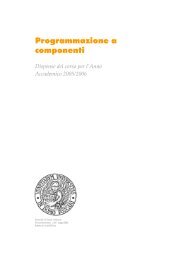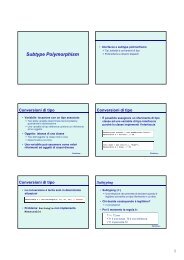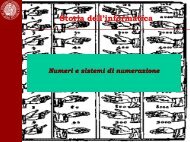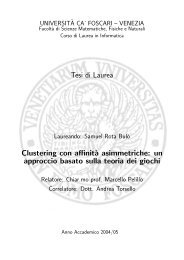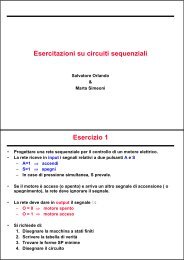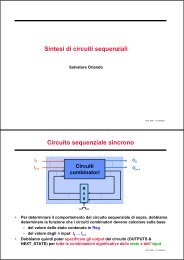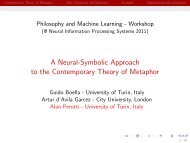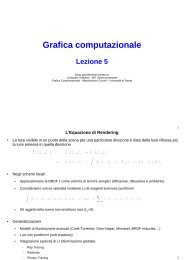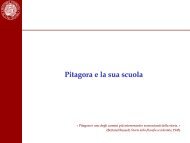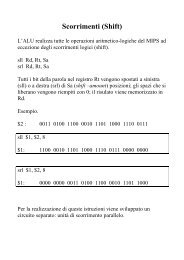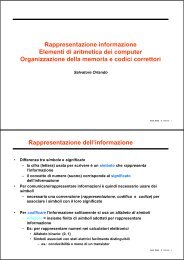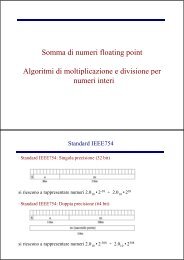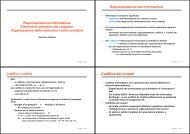Foscari - Dipartimento di Scienze Ambientali, Informatica e Statistica
Foscari - Dipartimento di Scienze Ambientali, Informatica e Statistica
Foscari - Dipartimento di Scienze Ambientali, Informatica e Statistica
You also want an ePaper? Increase the reach of your titles
YUMPU automatically turns print PDFs into web optimized ePapers that Google loves.
youngest generation, who are the more / most comfortable using the web for these purposes, ages and<br />
moves into more / most complex financial dealings.<br />
While Cana<strong>di</strong>ans are more / most likely to take their finances online, active Internet users in the United<br />
States are far more likely / likelier to shop online than / as Cana<strong>di</strong>an Internet users, and subscribe to<br />
three times as/so many online newsletters than /as their Cana<strong>di</strong>an counterparts. For example, more /<br />
most American Internet users (77%) have bought a product or service online than / as Cana<strong>di</strong>an<br />
Internet users (68% ). In the last year, American online shoppers have made more than twice as many<br />
online buys as / that Cana<strong>di</strong>ans, 14 purchases compared to 6.5.<br />
2 Con<strong>di</strong>tionals<br />
1 First con<strong>di</strong>tional<br />
if + present simple + will<br />
We use this form to say what we believe the result<br />
will be of a future action.<br />
If you don't finish the report by lunchtime, the boss won't be pleased.<br />
It is often used in negotiations to state con<strong>di</strong>tions.<br />
If you order more than ten, we'll give you a <strong>di</strong>scount.<br />
It is also used for threats and warnings.<br />
You'll get an electric shock if you touch that.<br />
You can use unless to mean 'if not' in the con<strong>di</strong>tion clause.<br />
You'll miss the flight unless you leave imme<strong>di</strong>ately.<br />
2 Second con<strong>di</strong>tional if + past simple + would<br />
We use this form to talk about future situations that we don't think are likely to happen or are<br />
imaginary.<br />
If I behaved like that, the boss would sack me. (But I never have behaved in this way in the<br />
past and it's very unlikely I will start now.)<br />
If I were the CEO of the company, I would completely restructure it.<br />
(But I am not, and never will be.)<br />
Compare this with a real possibility, which would be<br />
expressed in the first con<strong>di</strong>tional.<br />
If I don't get promoted, I will probably leave the company.<br />
We use the second con<strong>di</strong>tional in negotiations to make tentative offers, or when we want to show we<br />
are not sure about the situation or are less willing to make a concession.<br />
Would you accept my offer if I agreed to lower the price by 1%?<br />
(I am not sure this will be acceptable to you; 1% may not be enough.)<br />
The second con<strong>di</strong>tional is also used to make a request sound more polite.<br />
Would you mind if we postponed the meeting till tomorrow?<br />
NB In con<strong>di</strong>tional sentences we can change the order of the 'if' clause and the main clause.<br />
82



